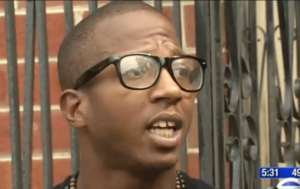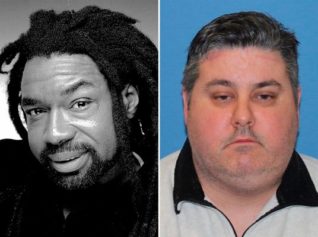
Browder was released from jail earlier this year when the robbery charges against him were mysteriously dropped. After his ordeal, Browder filed a civil lawsuit in October against the NYPD, the Bronx District Attorney, and New York City Department of Corrections.
His harrowing, unbelievable story began in May 2010, when he was walking home from a party in the Bronx. A strange man suddenly accused him of robbery and Browder was quickly arrested and thrown in jail. His family couldn’t afford his $10,000 bail, so Browder had to wait in jail until his trial date. But unfortunately that date never came.
Almost three years after he was first arrested, a judge offered to release him for time served on a plea deal. But Browder was adamant that he hadn’t done anything, so he opted to prove his innocence in court despite the 15-year sentence that hung over his head if he lost at trial. This is the dilemma that many young African-American males face every day in the criminal justice system, forcing many innocent men to take the plea instead of risking the trial which may not go in their favor.
After five more months in jail, Browder was finally released in June—without explanation and without Browder ever facing trial. Outrageously, he never even found out the exact nature of the accuser’s charges against him, or why those accusations were ultimately dismissed.
“This happens every day,” he told the “Huffington Post Live” host Marc Lamont Hill, speaking about his harrowing ordeal and the plea offer. “It’s gotta stop.”
Browder said while he was at Riker’s he repeatedly tried to kill himself. In March 2012, after he ripped the sheets off his bed to make a noose that he hung from the ceiling, New York City Correction officers stormed into the cell and grabbed him, tackled him to the bed, and punched him repeatedly, trying to punish him for the suicide attempt.
After another such attempt, he said correction officers “starved” him, withholding up to four meals at a time while he was trapped in solitary confinement.
And it was all for a crime for which he was never convicted.
“Browder’s case highlights more than racial injustices in our society,” wrote Matthew Rozsa at policymic.com. “The $10,000 bail set for his case was morally outrageous. Not only do such steep bails discriminate against impoverished individuals like those in Browder’s family, but they are often applied in cases where their use is excessive ad absurdum. This includes Browder who, after all, had been accused of a non-violent crime based solely on the word of his accuser. Similarly, the egregious time span that elapsed between Browder’s arrest and trial date, as well as the lack of clarity regarding the charges made against him, blatantly violated Browder’s constitutional rights as protected by the Sixth Amendment.”


